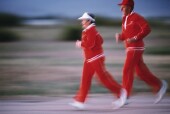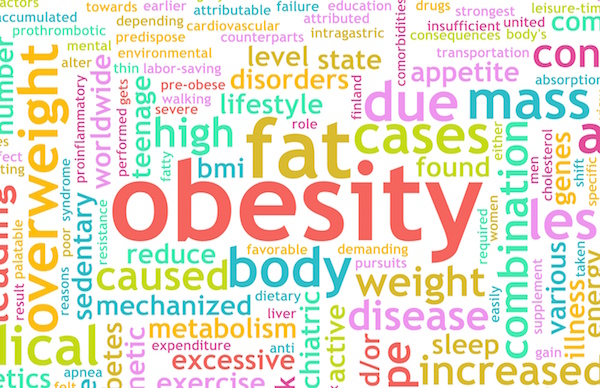
FRIDAY, April 5 (HealthDay News) — Need to lose weight? Running will help more than walking, according to new research.
And to keep off those lost pounds, continue running, suggests Paul Williams, a staff scientist at Lawrence Berkeley National Laboratory in California, who compared weight loss and weight control in thousands of runners and walkers over six years.
The same amount of exercise in adults with a body mass index over 28 (deemed overweight) resulted in 90 percent greater weight loss for runners compared to walkers, he found.
“Running is more effective than walking in preventing weight gain and achieving weight loss,” he said. Both groups shed pounds, but the runners lost more, Williams found.
That doesn’t mean vigorous exercise is all you need to do to lose weight. “You do have to add dieting,” he said. “Exercise is not by itself the most effective way.”
More than one-third of adults in the United States are obese, putting them at risk of serious health risks such as diabetes and heart disease.
For the new study, published in the April issue of Medicine & Science in Sports & Exercise, Williams evaluated changes in body mass index (BMI) of more than 32,000 runners and more than 15,000 walkers. (BMI is a calculation of body fat based on height and weight). All enrolled between 1998 and 2001.
Participants reported their height and weight for the preceding five years. They also supplied their waist size and information on their workouts, including miles run or walked, the frequency, pace, and any other exercise they did.
Williams found some differences between runners and walkers. The walkers were older on average than the runners — 53 compared to 41 years, respectively, for women; among men, 62 versus 48 years.
At the start, the runners also had a lower BMI. Male runners’ average BMI was 24; women’s was 22. Male walkers’ average BMI was 27; women’s, 25. A BMI of 25 is the low end of overweight.
The walkers were also more likely to smoke but more likely to eat fruit, the study found.
After the six-year follow-up, both groups lost weight. But the male runners and the heavier female runners had better results.
“An overweight woman of average height and a BMI over 28 might expect to lose 19 pounds by adding a 3.2-mile run to her daily routine, but only 9 pounds by expending the same amount of energy by walking,” Williams said. That total weight loss occurs gradually, but effects are seen from the start.
Running also takes less time to produce the same amount of effort, Williams said. For instance, that same woman would need to walk 4.6 miles at a brisk pace to expend the effort of running 3.2 miles. The run would take about 40 minutes; the walk about an hour and 20 minutes, he said.
One reason that running produces more weight loss is metabolic. “If you exercise vigorously like running, your metabolic rate remains elevated after the exercise,” Williams said. “For walkers, much less so.”
It’s also been shown that vigorous exercisers who overeat are good at compensating later, he said. “If runners overeat one day, they make up for it the next,” he said.
Williams decided to study running and walking because “runners and walkers think about how much they are doing by how far they go,” he said. Gym rats, on the other hand, are less accurate about reporting their exercise time, he said.
The findings are no surprise, said Dr. Tim Church, director of preventive medicine research at Pennington Biomedical Research Center, Baton Rouge, who was not involved in the study.
But Church said running itself shouldn’t get all the credit for the weight control. “People who are running are more focused on other weight issues,” Church said. “I guarantee you, the runners are way more focused on their diet than the walkers.”
And that’s a good thing, he said. “If you are concerned about weight, you probably need to focus on [both] diet and physical activity,” he explained.
People can exercise vigorously without having to jog or run, he added. Other forms of aerobic exercise, such as swimming or cycling, can be done vigorously.
Not everyone wants to run, Williams agreed. And moderate exercise, such as slower walking, is still beneficial, he said.
“The exercise you do is better than the exercise you don’t do,” Williams said. “We show weight loss benefit with walking; the benefits just aren’t as great as with running.”
But walking is just as good as running for reducing heart disease risk factors, including high cholesterol, blood pressure and blood sugar levels, according to a different study that analyzed the same walkers’ and runners’ data. That study was published online April 4 in the journal Arteriosclerosis, Thrombosis and Vascular Biology.
More information
For information on out-running middle-aged weight gain, see the Lawrence Berkeley National Laboratory.

